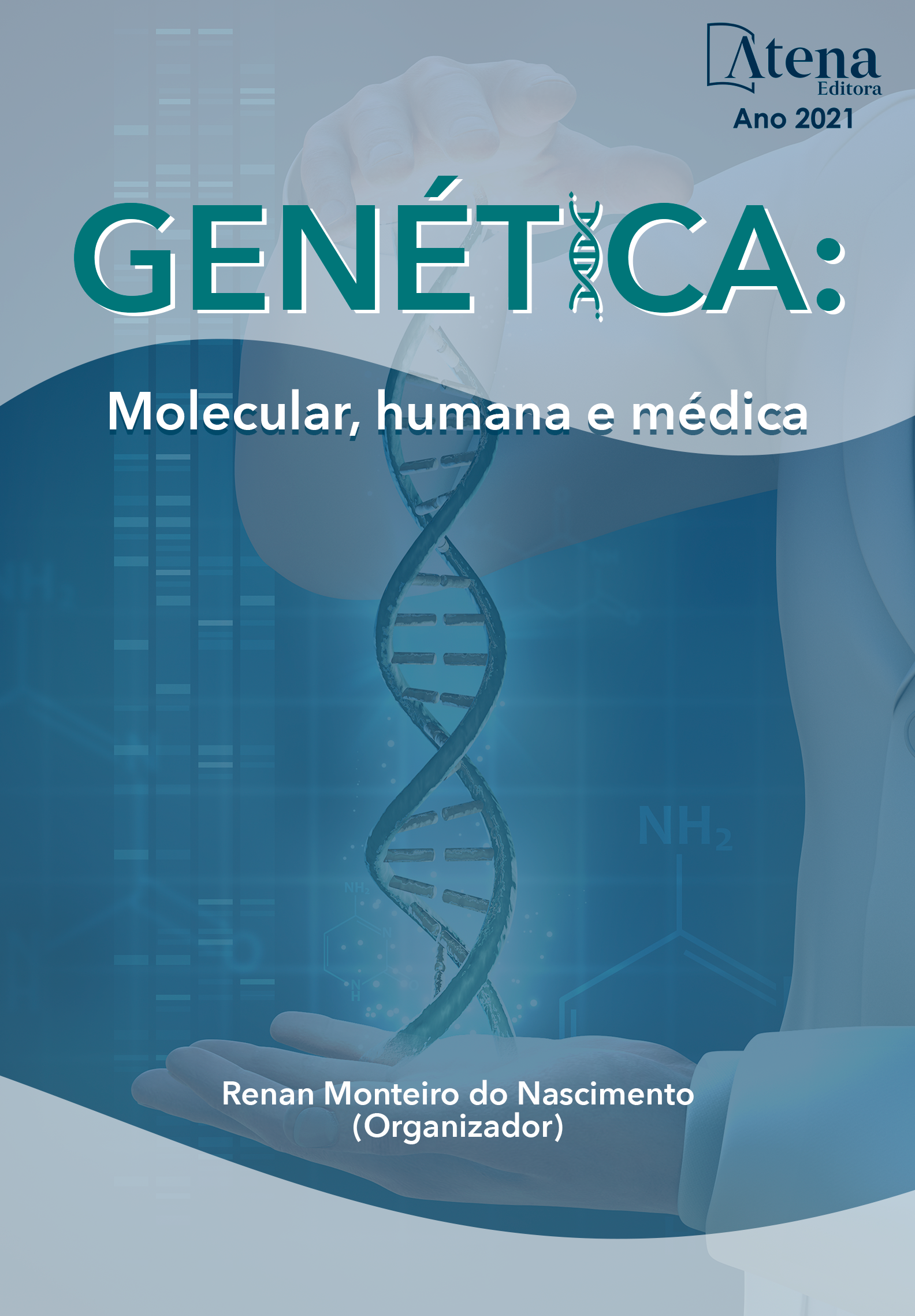
A PREDISPOSIÇÃO GENÉTICA À DIABETES MELLITUS TIPO 2: UMA REVISÃO DE LITERATURA
A Diabetes Mellitus tipo 2 (DM tipo 2) consiste em uma patologia endocrinológica que se caracteriza por resistência insulínica periférica, hiperinsulinemia e hiperglicemia constante. As consequências da DM tipo 2 são diversas, como o acúmulo de glicose no sangue, desarranjos no processo de cicatrização e hipertensão arterial. Embora se trate de uma condição multifatorial, a patogênese dessa disfunção metabólica apoia-se fortemente no fator genético. Dessa forma, o presente trabalho visa realizar uma revisão de literatura acerca dos principais pontos que envolvem a predisposição genética à Diabetes Mellitus Tipo 2, por meio de uma revisão integrativa de literatura com abordagem qualitativa a respeito das principais informações que relacionam o fator genético à DM tipo 2. Foram consultados os bancos de dados da Biblioteca Virtual de Saúde (BVS) e PubMed, com seleção de trabalhos publicados entre 2019 e 2021, o que resultou na seleção de 20 artigos, os quais obedeceram aos critérios estabelecidos para a abordagem temática. Os estudos apontam que pequenas alterações genéticas na forma de polimorfismos de nucleotídeo único (PNU) podem influenciar em fatores patogênicos da DM tipo 2. Além disso, também foi possível observar uma relação significativa entre PNU e aspectos socioambientais, como hábitos não saudáveis, corroborando em conjunto para a ocorrência de DM tipo 2. A análise dos trabalhos pôde contribuir para que fossem extraídos os principais pontos por eles divulgados, levando ao compêndio dos dados pesquisados.
A PREDISPOSIÇÃO GENÉTICA À DIABETES MELLITUS TIPO 2: UMA REVISÃO DE LITERATURA
-
DOI: 10.22533/at.ed.6202102076
-
Palavras-chave: Diabetes Mellitus Tipo 2, Predisposição genética, Polimorfismos de Nucleotídeo Único.
-
Keywords: Type 2 Diabetes Mellitus, Genetic predisposition, Single Nucleotide Polymorphisms.
-
Abstract:
Type 2 Diabetes Mellitus (Type 2 DM) consists in an endocrinology pathology characterized by peripheral insulin resistance, hyperinsulinemia and hyperglycemia. The consequences of Type 2 DM are many, such as accumulation of blood glucose, disarrangement of the cicatrization process and arterial hypertension. Although it is a multifactorial condition, the pathogenesis of this metabolic dysfunction heavily relies on the genetic factor. Thus, the present article aims to realize a review of literature of the main points which involve the genetic predisposition to Type 2 Diabetes Mellitus, per an integrative review of literature with a qualitative approach on the main information that relate the genetic factor to type 2 DM. The databases of “Biblioteca Virtual de Saúde” (BVS) and Pubmed were consulted, with the selection of papers published between 2019 and 2021, which resulted in the selection of 20 articles. These articles met the criteria established for the thematic approach. The studies point to how small genetic alterations in the form of single nucleotide polymorphism (SNP) can influentiate the pathogenics factors of Type 2 DM. Moreover, it was also possible to identify a significant relation between SNP and socioambiental aspects, such as unhealthy habits, corroborating together for the occurrence of Type 2 DM. The analysis of the papers helped the attainment of the main points published by them, leading to the compendium of the research data.
-
Número de páginas: 15
- José Hélder da Costa Vasconcelos
- Lara Maria Alves de Carvalho
- Maria Cecília Queiroga dos Santos
- Sara da Rocha Silva
- Ana Janaína Jeanine Martins de Lemos Jordão
- Cristina Ruan Ferreira de Araújo
- Ítalo Caio Lopes Jucá


